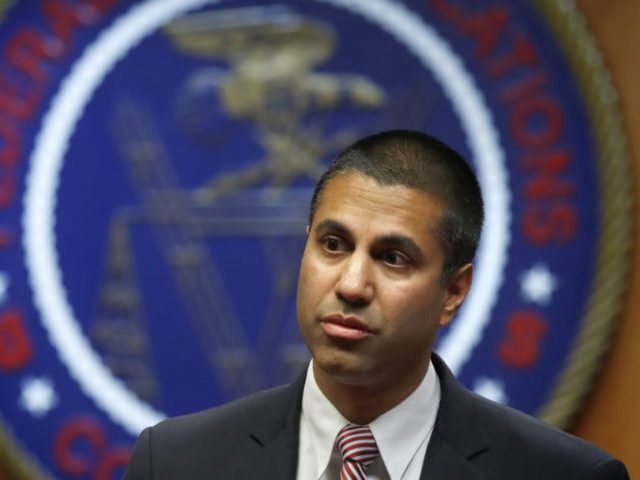The expiration of Net Neutrality rules — which regulated broadband cable as if it were a rotary phone service — is set for June 11.
In February 2015, the Democrat-controlled Federal Communications Commission extended Title II of its Depression-era regulatory access for household telephones to broadband cable in an initiative it claimed would expand Internet home access and prevent corporate giants from engaging in blocking, throttling, and paid prioritization.
The real powers behind the FCC’s Net Neutrality regulating broadband were Silicon Valley corporate giants, according to the bipartisan Center for Responsive Politics, which tracks the influence of Silicon Valley money on American elections. CRP found tat from 2008 to 2015, Silicon Valley’s annual lobbying expenditures spiked 800 percent, from $17.8 million to $139.5 million.
Net Neutrality raised the costs for, and limited innovation by, broadband providers, but it did nothing to stop Silicon Valley tech giants like Apple, Google and Facebook from blocking Breitbart News stories, throttling conservative posting, and selling advertisers their users’ deepest secrets on a paid prioritization basis.
According Pew Research’s “Internet/ Broadband Fact Sheet,” home broadband use has fallen from 70 percent down to about 65 percent since the FCC proposed Net Neutrality regulations in late 2013. The driver for dumping broadband has been cord-cutters drastically cutting access costs by using smartphones to stream Roku, Apple TV, and other devices.
FCC Chairman Ajit Pai announced the June 11 termination of Net Neutrality in a statement declaring that the repeal will lower costs for consumers and spur 5G network deployments by ending “unnecessary and harmful Internet regulations.”
Although the FCC’s “Restoring Internet Freedom Order” vote was in mid-December 2017, Pai waited to set the effective date until the Office of Management and Budget developed new data collection requirements for Internet Service Providers to disclose network management practices publicly, which were approved by the FCC on May 2.
The U.S. Federal Trade Commission is set to become, once again, the primary regulator for broadband after June 11, following the February ruling by the Ninth Circuit Court of Appeals that AT&T, as a large Internet Service Provider (ISP), is subject to FTC’s right enforce regulatory policies to prevent unfair or deceptive business trade practices.
Breitbart News reported that the California Senate Committee on Energy, Utilities and Communications — on a strictly partisan vote — approved a state super “Net Neutrality” law, titled SB 822. The measure would prohibit Internet service providers like AT&T and Spectrum from charging fees to “edge providers” that supply content to “end users,” and is expected to face a full Senate vote later this month.
Joel B. Pollak is Senior Editor-at-Large at Breitbart News. He was named to Forward’s 50 “most influential” Jews in 2017. He is the co-author of How Trump Won: The Inside Story of a Revolution, which is available from Regnery. Follow him on Twitter at @joelpollak.

COMMENTS
Please let us know if you're having issues with commenting.